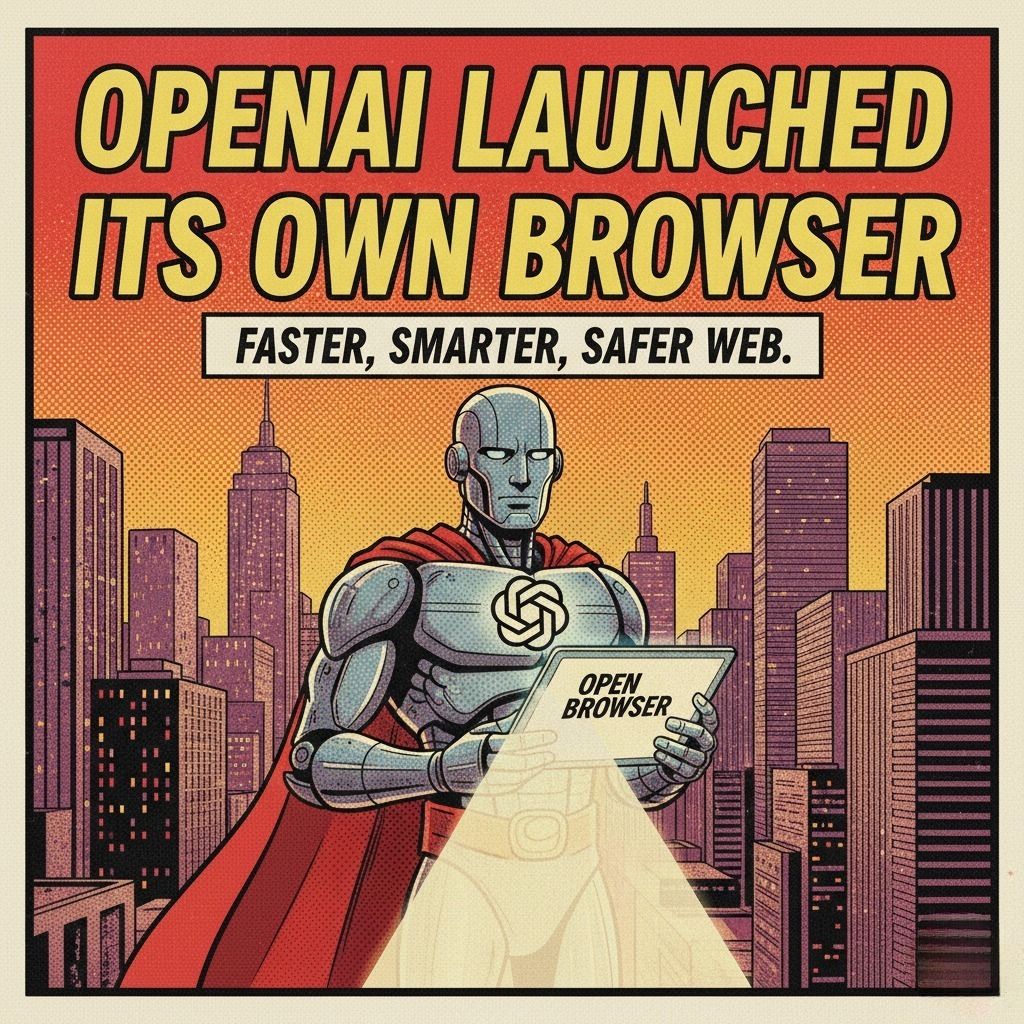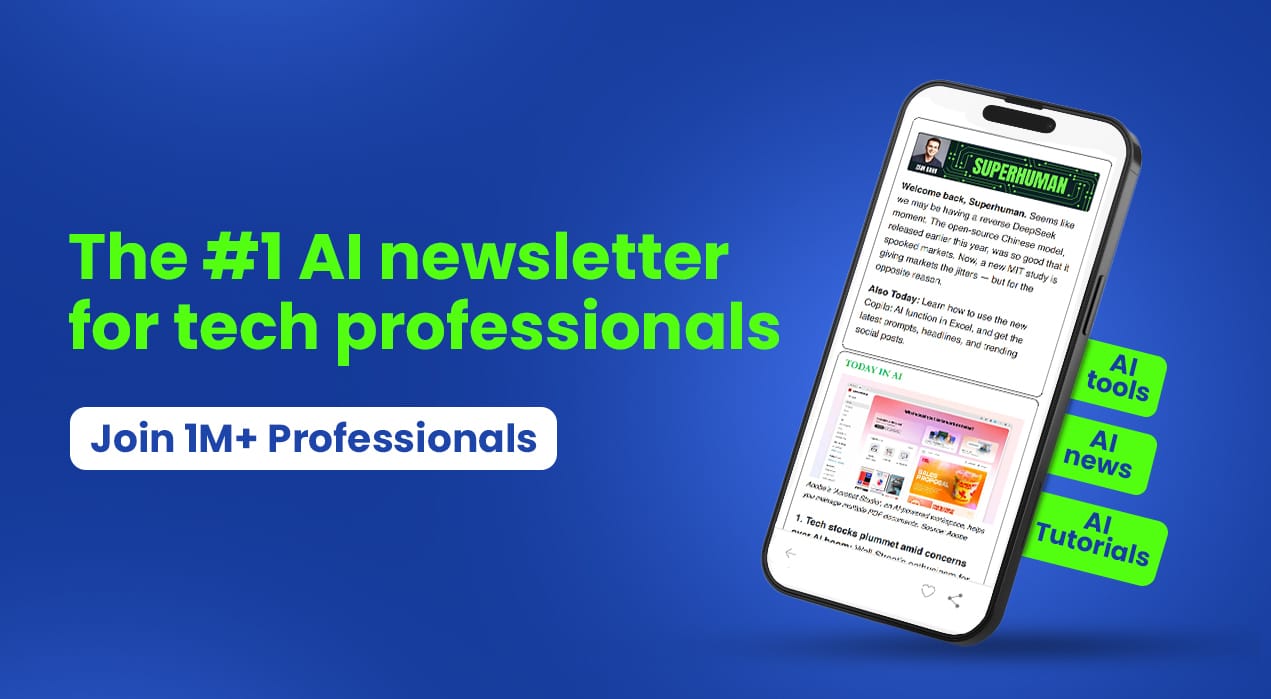Hey {{first_name | there}},
OpenAI just dropped a browser alternative that's got everyone talking.
But here's the thing that caught my attention: while everyone's focused on whether this will kill Chrome, I'm thinking about what this really means for us as AI builders.
Let me break down what happened and why you should care.
Browser Built With ChatGPT
ChatGPT Atlas isn't just another browser with AI slapped on. OpenAI fundamentally rethought what it means to browse the web when AI can understand everything you're looking at.
Here's what makes it different:
Chat Integration Everywhere – Click a button on any webpage, and ChatGPT instantly sees everything on that page. No more screenshots, no more copy-pasting.
Browser Memory That Actually Works – Atlas remembers key details from sites you visit. Ask it something like "Find all the job postings I was looking at last week and create a summary of industry trends" and it just works..
Agent Mode (Pro/Plus Only) – This is where it gets wild. ChatGPT can now take actions for you right in the browser. Planning a dinner party? Give it a recipe, and it'll find a grocery store, add ingredients to your cart, and place the order. At work, it can read through team documents, research competitors, and compile everything into a brief, all while you focus on other tabs.
The safety measures are solid too: it can't download files, install extensions, or access your computer's file system. It pauses before taking actions on sensitive sites like banking, and you can always use logged-out mode for extra protection.
This isn't just a better Chrome. It's the first step toward a future where you don't "browse" the web, you delegate tasks to an AI that browses for you.
For website owners, this is a wake-up call. If AI agents are doing the browsing, traditional SEO and user engagement metrics become meaningless. The question shifts from "How do we get users to click?" to "How do we make our content useful to AI agents?"
For AI builders, this is the pattern: integration over innovation. The best AI products won't be the ones with the most advanced models, they'll be the ones that seamlessly fit into existing workflows.
Google's AI Studio Vibe Coder
While OpenAI focuses on browsing, Google shot back by quietly launching something that could democratize app development: Google AI Studio's new vibe coding experience.
This isn't just another code generator. It's a complete AI-first development environment built around Gemini that takes you from idea to deployed app in minutes.
You tell AI Studio what you want to build in plain English. The system automatically selects the right Gemini models and features, then generates working code. No need to understand which model does what or how to configure APIs.
For AI builders, this means two things:
The market for AI-powered tools just got way bigger
The bar for what "good" looks like just got way higher (basic CRUD apps won't cut it anymore)
DeepSeek's 10x Data Compression
As always, Deepseek isn’t far behind in this race; they released something that could change everything: OCR models that compress data 10x better using vision tokens instead of text tokens.
Think about it: storing 10,000 words in just 1,500 visual tokens. This isn't just about saving memory – it's about expanding what's possible with context windows.
Imagine feeding an entire company handbook, complete with diagrams and charts, into an AI that processes it as efficiently as a single page of text. That's the future DeepSeek just made possible.
Amazon's Robot Workforce Plan
Leaked documents show Amazon plans to replace 600,000 US workers with robots by 2033.
75% of operations. Automated.
They estimate this will cut 30 cents off every item by 2027. That's not just efficiency – that's a complete reimagining of how business works.
While Elon says "work will be optional," Amazon's making it reality, one warehouse at a time.
Claude Life Sciences Launches
Anthropic also just launched Claude Life Sciences, essentially, Claude fine-tuned for biomedical work with direct integration to PubMed, PDB, and laboratory systems. It's like GitHub Copilot but for pharmaceutical companies.
Currently invite-only, but opening up in 2026. If you're building AI tools for healthcare, this is your wake-up call.
Where the Real Opportunities Are
Looking at Atlas, AI Studio, and everything else happening this week, here's what you should be focusing on going forward:
1. Build for the Agent-First Web
Atlas agents need to interact with websites. Right now, most sites are designed for humans, not AI. There's a massive opportunity to:
Add ARIA tags to your website so ChatGPT agents work better with it
Build browser extensions that enhance agent capabilities
Create "agent-friendly" versions of existing services (think API wrappers that agents can actually use)
2. Become an AI Workflow Architect
With tools like Atlas and AI Studio lowering the barrier to building, the bottleneck isn't coding anymore—it's knowing what to build and how to structure AI workflows.
People need help:
Designing multi-step agent workflows for their business
Connecting AI tools into existing processes
Building custom prompts and automation chains
3. Create Industry-Specific AI Solutions
Claude Life Sciences shows the pattern: general AI is commodity, specialized AI is premium. Pick a vertical you understand and build for it:
Real estate agents need AI that understands MLS listings
Lawyers need AI that understands legal precedent
Teachers need AI that understands curriculum standards
4. Prepare for the Post-Job Economy
Amazon's automation plans aren't unique—every major company is planning similar moves. But someone needs to:
Retrain displaced workers for AI-adjacent roles
Build tools that help people transition careers
Create platforms for gig economy in an AI-first world
So, what are you going to build? Hit reply and tell me, I respond to everyone.
- Aashish
Become the go-to AI expert in 30 days
AI keeps coming up at work, but you still don't get it?
That's exactly why 1M+ professionals working at Google, Meta, and OpenAI read Superhuman AI daily.
Here's what you get:
Daily AI news that matters for your career - Filtered from 1000s of sources so you know what affects your industry.
Step-by-step tutorials you can use immediately - Real prompts and workflows that solve actual business problems.
New AI tools tested and reviewed - We try everything to deliver tools that drive real results.
All in just 3 minutes a day


